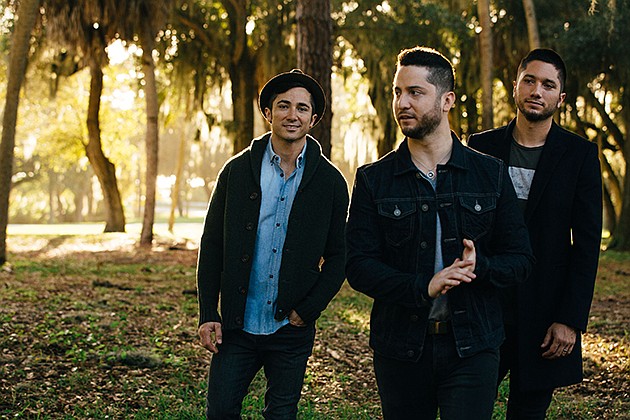- November 24, 2024
-
-
Loading

Loading

The boys of Boyce Avenue, a melody-infused, '90s-style alternative rock band with a few scruffy beards, disarming good looks and a cozy vibe, had plenty of career options.
One was a Harvard-educated lawyer. Another was going to be an architect. A third was headed toward a career in film production.
Those careers are on hold, probably permanently, given the success Boyce Avenue — a band of three tight-knit brothers born and raised in Sarasota — has reached in attacking the fortified music industry with a counterintuitive strategy: Make videos performing cover songs. Post on YouTube. Build a global fan base. Tour. Make original music.
While others have had limited success with variations of the YouTube-first model, Boyce Avenue has particularly flourished with it. Their YouTube channel, through late April, had 8.2 million subscribers and their videos had been viewed an eye-popping 2.54 billion times. The band has 3 million Facebook likes and 219,000 Instagram followers. About 10% to 15% of the band's revenues come from ads on YouTube. The rest is from tours, merchandise and digital album and single sales via iTunes, Pandora and other streaming sites.
“Our whole model and mindset,” says guitarist and backup vocals Fabian Manzano, 31, “is to embrace all the changes in the industry for the positive.”
The band's latest attempt at anti-industry standard success is its new album, with original songs. Aptly named “Road Less Traveled,” it was released April 15. “We are very much the type of people who just like to jump right in and try things,” Fabian Manzano says.
The first phase of that was the YouTube strategy. Boyce Avenue has covered more than 60 songs on YouTube since 2007, when it used a camcorder to record a video of the band playing Rihanna's hit “Umbrella.” The band recorded the video in their father's garage the day before she performed the song on the Video Music Awards. It was their first viral hit.
The covers, for which the band pays copyright fees, helped create a fanatical online following, especially overseas, and the band hit the road. Boyce Avenue has now gone on tour at least a dozen times in Europe, and has also played shows in Mexico, Dubai and Jakarta. It took at least six tours, says Fabian Manzano, to make a profit, playing around with the formula of gear, musicians and travel versus ticket and memorabilia sales. A two-month North American tour, from Seattle to Orlando, kicks off in September.
In 2010 the band signed a contract with Universal Republic, more fans, for an original songs album. But they struggled under the lack of freedom in a big company, and bought out their contract in 2011.
The brothers went back to the YouTube cover strategy. That continues today, at high volume. “The name of the game for us is to produce as much quality content as possible,” Manzano says.
Boyce Avenue recently made a mid-six-figure investment to facilitate that: It bought a house in Sarasota, off Clark Road, and it turned it into a high-end recording studio. It added about 1,000 square feet, with ceilings three times thicker than normal and walls filled with sand and concrete to block sound. The decor is modern with a California vibe. “We wanted it be warm and inviting.” Manzano says.
The counterintuitive music industry strategy wasn't the original plan. At first, in 2005, Boyce Avenue did things the old-fashioned way: Played bars in a college town (Gainesville) for $150 a show.
Fabian and Alejandro were students at University of Florida back then, and Daniel, after Harvard, was in a post-graduate program. The YouTube idea was try-it-and-see. “In the beginning it was a hobby,” Manzano says. “We didn't start out wanting to be rock stars.”
Follow Mark Gordon on Twitter @markigordon